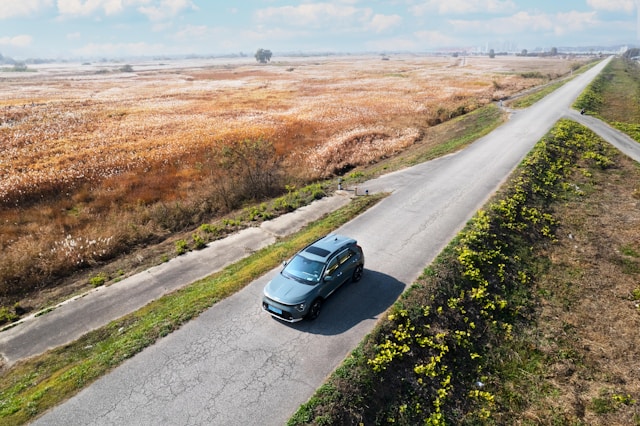Aggressive driving isn’t just about being in a rush, it can lead to dangerous situations on the road. It’s an issue that affects every driver in New Jersey and demands proactive measures to minimize its risks. In this detailed exploration, we dissect the nuances of aggressive driving in New Jersey and educate readers on the best practices for reporting these incidents promptly and effectively.
Understanding Aggressive Driving in the Garden State
New Jersey roads are renowned for their dynamic mix of fast-paced highways, bustling city streets, and densely populated suburban areas. Unfortunately, this diversity also invites a variety of aggressive driving behaviors that can escalate into life-threatening scenarios. From tailgating and excessive speeding to unsafe lane changes and even road rage incidents, aggressive driving is a serious concern that touches every part of the state.
The root causes are numerous and varied. Stress, time pressures, and a host of emotional triggers can lead to drivers acting in an aggressive manner. However, the consequences are too significant to ignore, with the potential for severe accidents, injuries, and fatalities.
The High Stakes of Aggressive Driving
The risks associated with aggressive driving are not just statistics—they are poignant stories of disrupted lives. We explore real scenarios and share insights from safety advocates and law enforcement professionals who have witnessed the aftermath of aggressive driving incidents. By understanding the full scope of the issue, New Jersey drivers can appreciate the urgency of mitigating aggressive driving within their communities.
We will also touch upon the legal ramifications for aggressive driving in New Jersey, providing a comprehensive overview of the judicial process and penalties for those found guilty of these behaviors. This serves as both an educational resource for understanding the law and a deterrent for those considering acting out on the road.
Reporting Aggressive Driving Incidents in Real Time
The most powerful tool at a driver’s disposal is the ability to report aggressive driving as it happens. We will guide readers through the process of making a report, detailing the information needed, and explaining the various methods for filing a complaint, whether it’s dialing 911, contacting local law enforcement, or utilizing state-specific resources such as the Aggressive Driver Systems (ADS) in New Jersey.
We will provide a step-by-step breakdown of what to do after witnessing aggressive driving and emphasize the importance of staying calm, noting critical details, and ensuring the report is as accurate as possible.
Initiatives for Road Safety in the Garden State

New Jersey is a frontrunner in implementing measures to enhance road safety. From educational campaigns and public service announcements to the deployment of innovative technologies like traffic cameras and anonymous tip lines, the state is committed to creating a driving environment where aggressive behaviors are swiftly addressed and deterred.
We will highlight some of these groundbreaking initiatives and their impact on reducing aggressive driving incidents and fostering a culture of respect on the road. This section will serve as a testament to New Jersey’s ongoing efforts in promoting safe streets for all motorists.
Cultivating a Community That Confronts Aggressiveness
A community that is united against aggressive driving is a more secure one. We will spotlight the ways in which local organizations and grassroots movements are making a difference by encouraging citizens to speak up, organize educational events, and collaborate with law enforcement agencies.
By sharing these community-driven initiatives, we inspire readers to become active participants in curbing aggressive driving and to support the shared goal of a safer New Jersey.
Navigating the Emotional Aftermath of Aggressive Driving
The experience of facing aggression on the road can leave a lasting emotional impact on individuals. We discuss the psychological toll on both victims and witnesses, offering coping strategies, and resources for managing the stress and anxiety that may follow such encounters.
This section aims to provide a supportive framework for those affected by aggressive driving incidents, reminding them that they are not alone and that there are resources available to help process the experience.
A Call to Action for All New Jersey Drivers
In the final section, we issue a rallying cry for all New Jersey drivers to take a proactive stance against aggressive driving. Whether it’s through reporting incidents, supporting local safety initiatives, or simply driving in a responsible and courteous manner, each action—no matter how small—contributes to the collective effort of making our roads safer.
We encourage readers to share this post with their networks, engaging a wider audience in the discussion and promoting a culture where aggressive driving is not tolerated. By uniting in our efforts, we can create lasting change and exemplify the spirit of respectful and safe driving that New Jersey deserves.
In conclusion, addressing the issue of aggressive driving requires a comprehensive approach that combines education, awareness, reporting, and community engagement. By weaving together these components, we can aspire to a future where New Jersey’s roads are synonymous with safety and serenity, rather than stress and danger.
Five Surprising Insights About Aggressive Driving in New Jersey
- In New Jersey, aggressive driving accounts for more than a third of all traffic fatalities each year, highlighting the deadly impact of behaviors such as speeding and tailgating.
- According to recent studies, New Jersey ranks in the top 10 states for the highest rate of aggressive driving incidents, underscoring a critical need for intensified road safety measures.
- New Jersey’s unique implementation of the Aggressive Driver System (ADS) allows for real-time reporting of aggressive behaviors, making it one of the pioneering states in leveraging technology to combat road rage.
- The Garden State has observed a significant decrease in aggressive driving-related accidents in areas where automated traffic enforcement devices, such as red-light cameras, have been installed, indicating that technology plays a crucial role in deterrence.
- Surprisingly, peak incidents of aggressive driving in New Jersey do not occur during traditional rush hours but rather between the hours of 10 pm and midnight, suggesting that night time driving, possibly with reduced visibility and increased fatigue, contributes to higher risk scenarios.
Ten recommendations on how to effectively deal with aggressive drivers:
- Stay Calm: Keep your own temper in check. Do not retaliate or provoke the aggressive driver further.
- Do Not Make Eye Contact: Avoid making eye contact with the aggressive driver, as this can be perceived as confrontational.
- Give Them Space: If someone is tailgating you or trying to engage aggressively, safely change lanes and allow them to pass.
- Use Your Horn Sparingly: Only use your horn to alert the aggressive driver of your presence if necessary, not to express frustration.
- Do Not Block the Passing Lane: If you are in the left lane and someone wishes to pass, move over when it is safe to do so.
- Avoid Gestures: Keep your hands on the wheel. Gestures can escalate a situation with an aggressive driver.
- Report Serious Aggressive Driving: If you witness extremely dangerous behavior, report it to authorities by providing a vehicle description, location, and direction of travel, but only if you can do so safely.
- Stay Buckled Up: Ensure everyone in the car is wearing their seatbelt in case an aggressive driver causes an accident.
- Focus on Driving: Keep your attention on the road and avoid getting distracted by an aggressive driver’s actions.
- Practice Defensive Driving: Be aware of your surroundings and anticipate potential issues. By driving defensively, you can protect yourself from the unpredictable actions of aggressive drivers.



